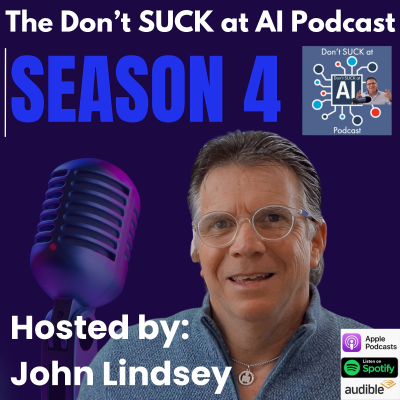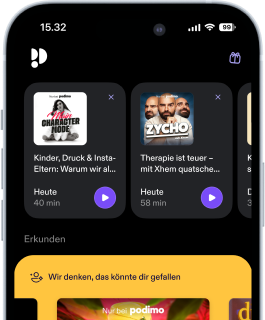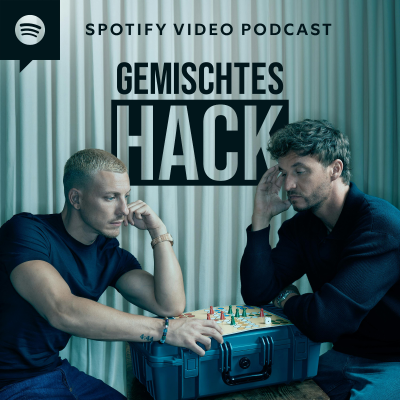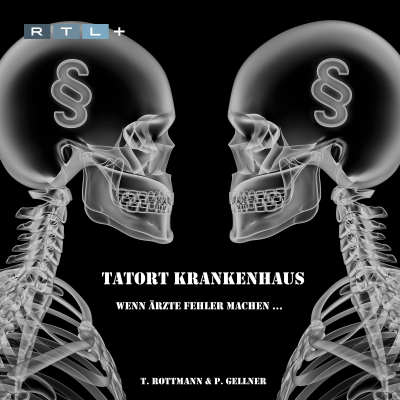
Don't SUCK at AI
Podcast von John Lindsey
Nimm diesen Podcast mit

Mehr als 1 Million Hörer*innen
Du wirst Podimo lieben und damit bist du nicht allein
Mit 4,7 Sternen im App Store bewertet
Alle Folgen
34 FolgenJohn and Maged Helmy, the Founder and CEO of Newcode talk about how the company caught "lightning in a bottle" launching their Legal AI solution in the US after strong investor and user response. Maged shares Newcode's origins, beginning with GPT2 in Nov 2021 to standardize document handling. His journey started in 2016, solving router issues with ML, evolving to using LLMs for document simplification. A key focus is security; Maged's PhD research ensured secure, quality AI within user environments, leading to a patented, integrated AI platform. This platform seamlessly runs within existing workflows, crucial for regulated industries like legal, which, despite slower tech adoption, have significant security needs. The AI enhances roles, not replaces them, evolving human tasks to be more sophisticated. This upskilling boosts competitiveness, offering better, more accessible services. Maged compares AI's impact to the internet and cloud. Newcode equalizes the playing field for mid-sized firms (50-300 employees) with its scalable, out-of-the-box solution, freeing them from heavy investment. It supports parallel queries, tracks outdated regulations, and integrates with existing apps. Expanding to the US, Newcode will establish a physical presence for deeper client integration and agentic workflows. Maged predicts that within 24 months, everyone will have personalized agentic AIs. John foresees Newcode as a game-changer. Connect with Maged on LinkedIn or Newcode's website; he'll be in California in June. WEBSITE: www.NewCode.ai LINKEDIN: https://www.linkedin.com/in/magedhelmy/ Bob Miller Intro with Music Fade
🎤 Mic drop moment - my interview with Brittany Hernandez (Head of Legal Innovation at Gavel) is here!! In this episode of the "Don't Suck at AI" podcast, Brittany goes over: ✅ Using generative AI for document automation ✅ Using AI directly within Microsoft Word to redline and negotiate documents quickly ✅ Ideal practice areas and use cases for AI tools ✅ How to leverage AI to its full potential in your #lawfirm Gavel's Founder & CEO Dorna Moini is offering (for a limited time) exclusive onboarding sessions where she'll walk you through how to use Gavel Exec - the new AI redlining and negotiation assistant you can use directly within your Word documents. Book your time slot here while there are still seats available: https://calendly.com/dorna-moini/gavel-exec-onboarding?utm_source=john-lindsey&utm_medium=linkedin&utm_campaign=gavel-exec-podcast&month=2025-05 Start your free trial of Exec here: gavel.io/exec?src=affiliate&mktcmpid=john-lindsey [http://gavel.io/exec?src=affiliate&mktcmpid=john-lindsey] !! Don't forget to use my discount code JLINDSEY-EXEC5 when you upgrade to get 5% off your first month !! Bob Miller Intro with Music Fade
* Silicon Valley Childhood: Laura Jeffords Greenberg was born and raised in Silicon Valley during the .com boom, leading to early and constant exposure to technology. * Law School: Laura attended law school, initially with the goal of "changing the world." * Sports Career Aspiration: After law school, she considered a career in sports due to her love for it as an athlete. * Media Career: Laura then transitioned into the media industry. * Red Bull: She worked at Red Bull, where she received pivotal career advice: to join a tech startup instead of a traditional media company due to the similar risk-taking and dynamic environment. * VR Startup (First Lawyer): Following the advice, Laura joined a startup in the early days of VR (initially 360 video, later XR/AR) as their first lawyer. * Cryptocurrency Involvement: The VR startup she worked for also ventured into cryptocurrency, requiring Laura to develop knowledge in securities law. * Unity Technologies (First R&D Lawyer): Laura then moved to Unity Technologies, becoming the first lawyer to support their R&D department of over 900 engineers. This was a pivotal and fulfilling role where she felt a strong sense of belonging. * Exposure to AI/Machine Learning at Unity: While at Unity, Laura supported projects involving machine learning and AI, working on cutting-edge deals. * Layoff from Unity: Laura was laid off from Unity, marking what she believes was the beginning of a wave of layoffs at the company. * General Counsel Role (Copenhagen): As an American living in Denmark, Laura took on a general counsel role. * Emergence of ChatGPT: During her time as interim general counsel, ChatGPT was released. * Experimentation and LinkedIn Content: Laura began experimenting with ChatGPT to improve her work efficiency and started sharing her experiences and insights on LinkedIn. * Increased Interest and Invitations: Her LinkedIn content gained traction, leading to invitations to speak at conferences. * Early Requests for AI Training: Law firms began reaching out to Laura, offering to pay her to teach their lawyers how to use AI tools like ChatGPT, which she initially found surprising. * Discovery of Lawyers' Initial Struggles with AI: Through her training sessions, Laura realized that many lawyers, despite their expertise in information gathering, struggled with effectively prompting and using AI. * Development of a Side Business: Laura started a side business focused on educating lawyers about AI while still working as in-house counsel. * Joining Wordsmith AI: This journey ultimately led to Laura becoming the Head of the AI Legal Academy at Wordsmith AI, where her full-time role is now to teach lawyers how to leverage AI in their practice. * Wordsmith AI Product Focus: Laura highlights the practical applications of Wordsmith AI for in-house counsel, its integration with common tech stacks (Slack, Notion, G Suite), the ability to connect knowledge bases, its use of multiple LLMs, and features like "first pass" agreement review. * Challenges of Keeping Up with AI Developments: Laura discusses the rapid pace of AI advancements, making it challenging to stay informed and keep educational content current. * Future Interest in AI Agents: Laura expresses a keen interest in the development and application of autonomous AI agents for legal tasks. Bob Miller Intro with Music Fade
1. Podcast Introduction: John Lindsey, the host of "Don't Suck at AI," introduces the episode topic: the difference between chatbots and AI agents. 2. Chatbot Explanation: Lindsey describes chatbots as operating on pre-programmed rules and decision trees. They are limited in their understanding, follow scripts, and struggle with nuances of language and remembering previous interactions. Common uses for chatbots include customer support, scheduling, and retail returns. 3. AI Agent Introduction: Lindsey shifts the focus to AI agents, emphasizing their more advanced nature due to large language models (LLMs) and techniques like natural language processing (NLP) and machine learning. 4. AI Agent Capabilities: AI agents are described as having contextual understanding, the ability to remember past interactions, and adapt their responses accordingly. They can make decisions and take actions autonomously, integrate with other systems, and perform tasks independently. 5. Analogy: Lindsey compares chatbots to receptionists and AI agents to personal assistants to illustrate their different roles and capabilities. 6. Benefits of AI Agents for Businesses: Lindsey discusses several areas where businesses might benefit from using AI agents, such as automating repetitive tasks, processing large amounts of data quickly, providing personalized experiences, and offering 24/7 availability. 7. Legal Tech Example: Lindsey pivots to focusing on the legal domain, specifically how AI agents could be used within a midsize law firm focused on intellectual property (IP) rights. The scenario involves monitoring trademarks and copyrights for potential infringements. 8. Legal Firm Benefits: The benefits for the law firm include proactive monitoring, minimized damage to client brands, increased efficiency, enhanced client confidence, and gaining a competitive advantage. 9. Off-the-Shelf AI Agent Examples: Lindsey mentions several commercially available AI agents: * Reply Guy: An AI agent that finds the best places to mention your product online. * Revid AI: An AI script generator that creates stories aligned with your audience. * SEO Traffic Agent: An agent that does keyword research, writes articles, and links content for SEO purposes, syncing with various website platforms. 1. Podcast Conclusion: Lindsey concludes the podcast by emphasizing the potential of AI agents and encourages listeners to conduct their own research. He reviews the main topics covered and then wraps up the episode. Cast of Characters: * John Lindsey: The host of the "Don't Suck at AI" podcast. He guides the listeners through the discussion, explaining the differences between chatbots and AI agents, as well as exploring potential uses and examples of each within business and specifically within the legal tech industry. He also provides off-the-shelf AI tool examples. His tone is informative and engaging. He appears to be a leading voice in this particular space. Bob Miller Intro with Music Fade
The Arrival of DeepSeek: Does It SUCK?? Duration: 10 Minutes 1. Introduction * Welcome and brief overview: DeepSeek's impact on business and law. * Key points: operational changes, legal implications, and ownership concerns. 2. What is DeepSeek? * Introduction to DeepSeek: What it is and how it compares to other AI models. * Main Features: deep reasoning, complex data analysis, proactive decision-making. 3. DeepSeek’s Impact on Business * Operational Efficiency: Automation of complex workflows and strategic insights. * Risk Management & Compliance: Real-time monitoring and predictive analytics. * Competitive Advantage: How early adopters can gain a business edge. 4. DeepSeek’s Impact on the Legal Industry * Legal Research & Analysis: Faster, more accurate legal research. * Contract Review & Drafting: Streamlined review processes and risk detection. * Ethical & Regulatory Considerations: Data privacy, algorithmic accountability. 5. Ownership Concerns: The China Connection * Addressing DeepSeek's Chinese ownership and data privacy concerns. * Comparing with recent issues like TikTok’s data controversies. * Potential deterrents for businesses: data storage, access, and security risks. 6. Final Thoughts & Call to Action * Recap key takeaways: DeepSeek’s potential and the importance of responsible adoption. * Feedback: “How do you see DeepSeek impacting your industry?” * Call to action: Subscribe, share thoughts, and stay tuned for future episodes. Bob Miller Intro with Music Fade























